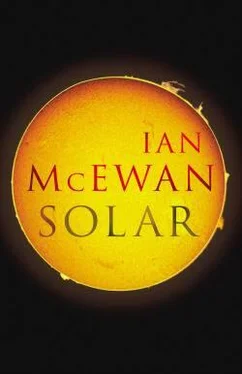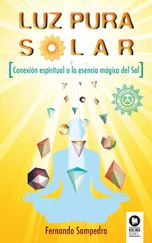Nancy Temple's replacement was Susan Appelbaum, a visiting academic from Tel Aviv, who lectured in cognitive psychology and was as light as a bird in her red and blue frock, with a twittering voice to match. She was nervous speaking in public and made an awkward start. In the theatre there was suspicion and some confusion. From the point of view of the audience, which seemed to be of one mind in all things, she had points in her favour and points against. As a woman she was a poor hegemon, and being unconfident, poorer still (Beard thought he was getting the hang of this term). Also, after a few minutes, it was clear she was speaking against Beard. On the other hand, she was a Jew, an Israeli and, by association, an oppressor of Palestinians. Perhaps she was a Zionist, perhaps she had served in the army. And once she got under way, the hostility in the room began to grow. This was a postmodern crowd with well-developed antennae for the unacceptable line. Its heart, when not seized by correct utterance from correct quarters, turned cold. The lady from Tel Aviv was forthright about her reactionary position, which included various underlying assumptions she shared with Beard. She was an objectivist, in that she believed the world existed independently of the language that described it, she spoke in praise of reductionist analysis, she was an empiricist and, by her own proud admission, an 'Enlightenment rationalist', which was, Beard sensed from the groaning dissent in the audience, a tad regressive, if not hegemonic after all. There was, she insisted, such a thing as biological sex differences in cognition, but only empirical evidence should shape our view. There was a human nature and it had an evolutionary history. We were not born tabula rasa. By the time her introduction was over, she was having difficulty holding the theatre's attention.
Not many listened to Appelbaum as she confronted Beard's arguments. She knew all the same studies, and many more. Some of them she had conducted herself. The literature was clear – there were no significant differences in cognition that gave males an advantage in maths or physics. Divergences between boys and girls, men and women, only emerged in complex tests where subjects were offered more than one route to a solution: men and women chose differently. The people-versus-things distinction was mythology and had distorted some poorly designed but much-cited experiments. On social factors, on the other hand, the studies were eloquent – perceptions and expectations were far stronger signals than objectively measured differences between men and women. This should have pleased her audience, but they didn't catch it, they weren't attending as she described experiments in which babies were assigned random gender names and adults were asked to judge their various activities. Or parents were asked to predict their children's abilities in a given task. Or academics were required to evaluate fictitious male and female candidates with identical qualifications. These, she said, were statistically significant data that showed that perception of gender was a powerful determinant of attitudes. And there were well-studied self-sustaining loops – people applied to departments where there were people 'like them', and where they were likely to have success.
By the time Appelbaum started in on her conclusion, Beard thought he was the only one listening. Statistics were clearly not a postmodern concern, and nor were historical anecdotes. She referred to the life of Fanny Mendelssohn, recognised at the time as a prodigous musical talent, the equal of her brother, Felix. Famously, her father explained to her in a letter that while music would be her brother's profession, for her, music must remain an ornament, for Sundays. A hundred years ago, many 'scientific' reasons were advanced why women could not be doctors. Today, there remained unconscious or unintentional, widely diffused differences in the ways boys and girls, men and women, were understood and judged. From cradle to first job application and beyond, in a sustained arc of development, these cultural factors were shown by empirical investigation to be vastly more significant than biology. It was plain why there were so few women in physics.
She sat down to no applause. But there was general relief that she was finally done. Ten minutes later the meeting broke up. Beard headed straight for the exit, feeling reprieved. Some might have said that he had just taken a good kicking, others that he had triumphed. What did he know? He was a physicist after all, not a cognitive psychologist. But pleasingly, here at the ICA, he was hated no more than he had been at the start. These people were not going to take their lead from an Israeli. That was hardly fine, but there was nothing he could do about it. And he was fine, he was still in one piece. As he went along the corridor, the crowd parted for him, no doubt in distaste, and he was at the door onto the Mall in seconds and stepping out into bright sunshine and a reception party, about thirty chanting protestors with placards – No To Eugenics! Nazi Professor Out! – and a dozen press, mostly cameramen, and four members of the Metropolitan Police.
Perhaps matters would have turned out better if Beard had not brought out from the event indoors a mood of jaunty defiance. There were half a dozen older women among the demonstrators. One of them nipped out from behind a policeman, took a tomato from a brown paper bag and threw it at Beard. She was ten feet away and there was no time to dodge. A rotten tomato is an item of urban legend. This one, though soft, looked perfectly edible. It flopped against his lapel and clung there a moment. When it fell he caught it in his open palm, and with a quick, impulsive movement chucked it back, an entirely playful gesture, he tried to explain afterwards, without anger or malice. Why else throw it underarm? The tomato, its skin now ruptured, hit the woman full in the face, just to the right of her nose. With a strange sound, a plaintive musical hoot, the woman, who was about Beard's age and almost as plump, brought her hands up to her face, somehow trapping and smearing the tomato against her features, and at the same time sank to her knees.
In colour, it made a dramatic photograph. Taken from behind Beard, it showed him looming over a woman cowering on the ground, the victim of a gory assault. In Germany it was on the cover of a magazine with the headline 'Protester Felled By "Neo-Nazi" Professor'. In the background, not quite out of focus, was the relevant placard. Another picture, also widely used, taken over the head of the kneeling woman, revealed Beard's heartless smile. He could not help himself, he was genuinely amused. The tomato was so soft, his toss so gentle, the woman's reaction so comically overplayed, a policeman so solicitous in bending over her, another so self-important as he urgently radioed for an ambulance. This was street theatre. A policewoman touched Beard's arm and said tonelessly that she was arresting him for assault. A second policewoman stood close, pressing her shoulder against his to let him know that struggle was useless. The handcuffs, alive with the young woman's body warmth, clicked over his wrists to a good-natured cheer from the demonstrators. A half-dozen photographers walked backwards in front of him as he was led towards a patrol car parked on the Mall. As it pulled away they ran alongside, with a great clatter of shoes, snapping Beard in the criminal gloom of the back seat.
The police car drove past the National Portrait Gallery, up the Charing Cross Road and stopped outside Foyles. The arresting officer, who was sitting with Beard, unlocked the handcuffs as her colleague turned round in the front seat and said, 'You can go now, sir.'
'I thought you were charging me with assault.'
'Just removing you from a scene where there was likely to be a breach of the peace. For your own safety.'
Читать дальше












